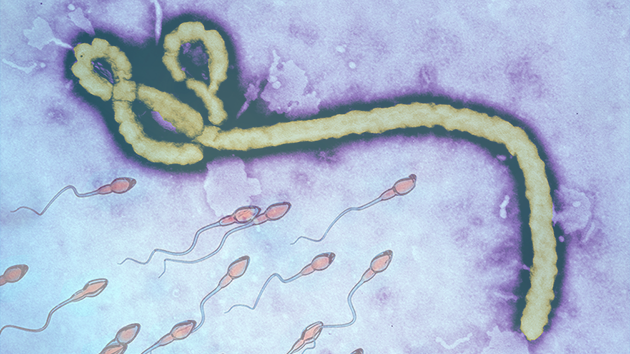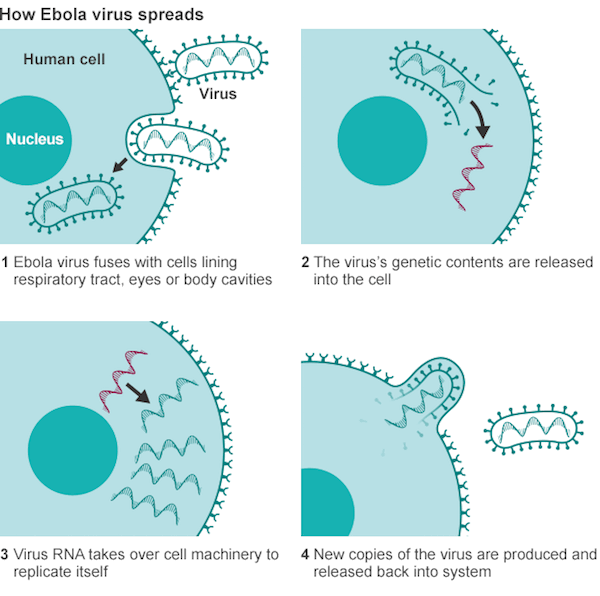
A new report in the New England Journal of Medicine has found that Ebola persists in the semen of male survivors for up to nine months after infection.
BBC News reports:

BYPASS THE CENSORS
Sign up to get unfiltered news delivered straight to your inbox.
You can unsubscribe any time. By subscribing you agree to our Terms of Use
Latest Video
Men who have survived Ebola are being encouraged to wear condoms.
Previous outbreaks of Ebola had shown the virus was present in semen for 82 days after the onset of symptoms.
However, with huge numbers of Ebola-survivors now in West Africa, there is concern about how long the virus persists and if that poses a threat.
Spread
One study, led by the US Army Medical Research Institute, documents the first “evidence of sexual transmission of Ebola virus”.

The researchers analysed the genetic code of the virus in a man’s semen and the blood of his female partner in Liberia and showed it was “consistent with direct transmission”.
The analysis reported “infective Ebola virus” was in the man’s semen for at least 179 days after the onset of symptoms.
Meanwhile, a team in Sierra Leone tracked a 93 male survivors and found traces of Ebola virus in the semen of:
- 100% of men (nine out of nine tested) after three months
- 65% of men (26 out of 40 tested) between four and six months
- 26% of men (11 out of 43 tested) between seven and nine months
The virus was not detected in the only man tested 10 months after symptoms started.
The doctors report concluded: “We do not yet have data on the extent to which positivity [on the test] is associated with virus infectivity”.
The men will continue to be followed up and samples are being taken to determine if the virus is live.
‘Worrying’
The World Health Organization said sexual transmission was “rare” and pointed to areas of Sierra Leone that have very high numbers of survivors and yet have had no recurrences.
Margaret Chan, the director general of the WHO, told the BBC there was still doubt about what a positive test result meant.
She said: “Does it mean they are still infectious or are they just fragments? We don’t have the definitive evidence yet.
“The degree of uncertainty is worrying, that’s why we need to take precautionary measures, so we advise survivors to take protection through contraception.”
Prof David Heymann, from the London School of Hygiene and Tropical Medicine, said: “Condoms should be used as a precautionary measure until better understanding is gained through long-term study.
“This must be done in a way that prevents discrimination, and sociologists must work with health promotion teams and community leaders, as well as survivor groups, so that language is understandable and not offensive.
“Past outbreaks have not been reignited by survivors, but numbers have been small, and no sexual transmission was recorded prior to the current outbreaks.”
According to the WHO, sexual transmission of the Ebola virus from females to males is less probable, but theoretically possible.


